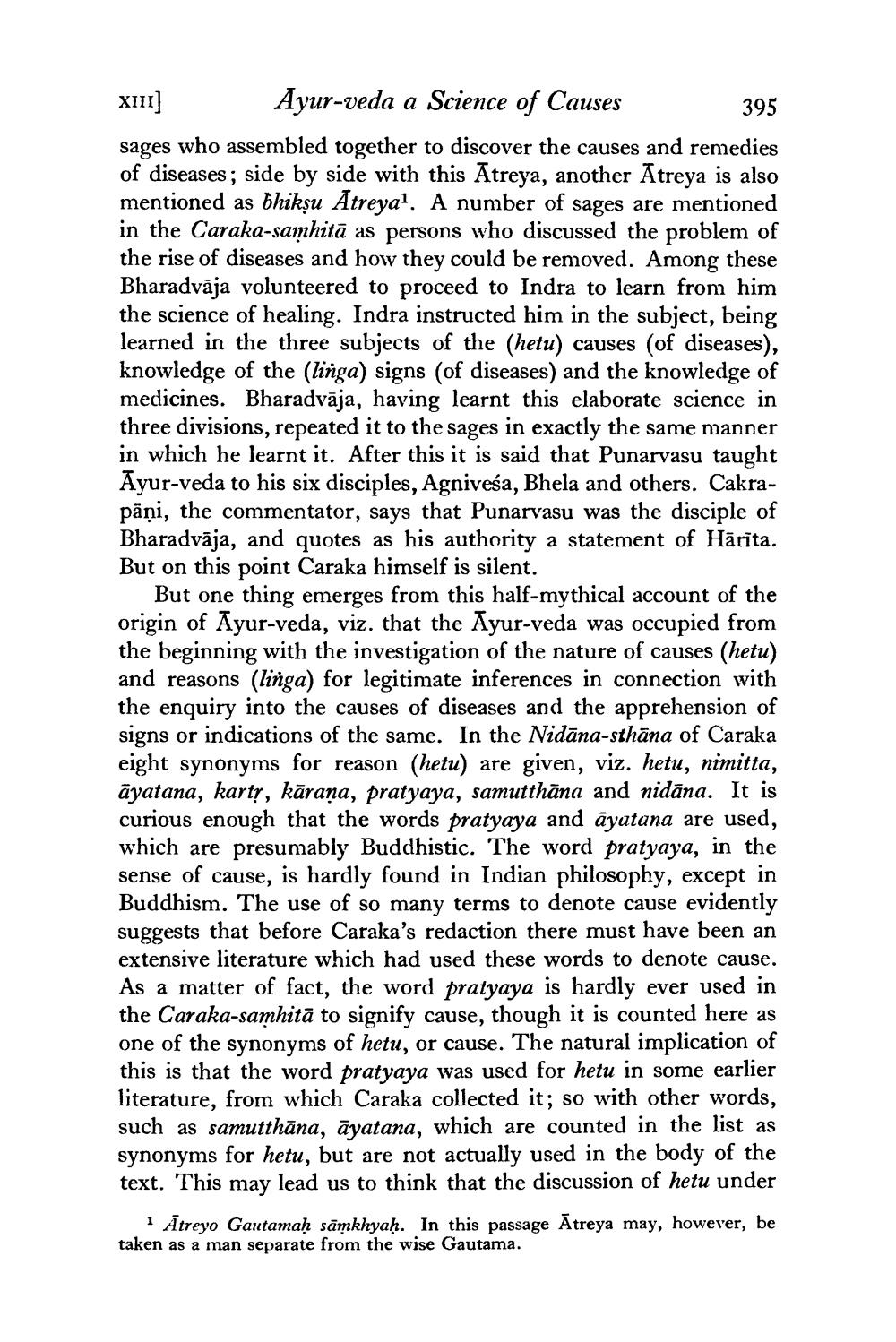________________
XIII]
Ayur-veda a Science of Causes
395
sages who assembled together to discover the causes and remedies of diseases; side by side with this Atreya, another Atreya is also mentioned as bhikṣu Atreya1. A number of sages are mentioned in the Caraka-samhita as persons who discussed the problem of the rise of diseases and how they could be removed. Among these Bharadvaja volunteered to proceed to Indra to learn from him the science of healing. Indra instructed him in the subject, being learned in the three subjects of the (hetu) causes (of diseases), knowledge of the (linga) signs (of diseases) and the knowledge of medicines. Bharadvāja, having learnt this elaborate science in three divisions, repeated it to the sages in exactly the same manner in which he learnt it. After this it is said that Punarvasu taught Ayur-veda to his six disciples, Agniveśa, Bhela and others. Cakrapāņi, the commentator, says that Punarvasu was the disciple of Bharadvāja, and quotes as his authority a statement of Hārīta. But on this point Caraka himself is silent.
But one thing emerges from this half-mythical account of the origin of Ayur-veda, viz. that the Ayur-veda was occupied from the beginning with the investigation of the nature of causes (hetu) and reasons (linga) for legitimate inferences in connection with the enquiry into the causes of diseases and the apprehension of signs or indications of the same. In the Nidāna-sthāna of Caraka eight synonyms for reason (hetu) are given, viz. hetu, nimitta, āyatana, kartṛ, kāraṇa, pratyaya, samutthana and nidana. It is curious enough that the words pratyaya and ayatana are used, which are presumably Buddhistic. The word pratyaya, in the sense of cause, is hardly found in Indian philosophy, except in Buddhism. The use of so many terms to denote cause evidently suggests that before Caraka's redaction there must have been an extensive literature which had used these words to denote cause. As a matter of fact, the word pratyaya is hardly ever used in the Caraka-samhita to signify cause, though it is counted here as one of the synonyms of hetu, or cause. The natural implication of this is that the word pratyaya was used for hetu in some earlier literature, from which Caraka collected it; so with other words, such as samutthāna, āyatana, which are counted in the list as synonyms for hetu, but are not actually used in the body of the text. This may lead us to think that the discussion of hetu under
1 Atreyo Gautamaḥ sāmkhyaḥ. In this passage Atreya may, however, be taken as a man separate from the wise Gautama.




